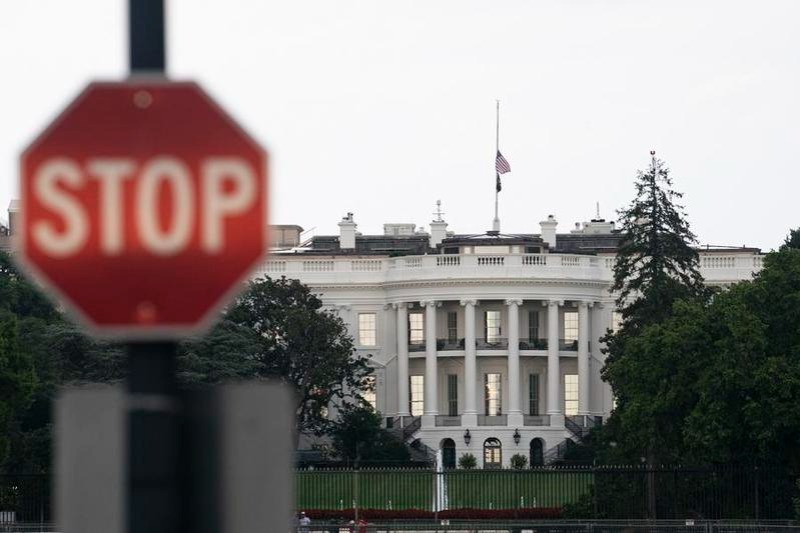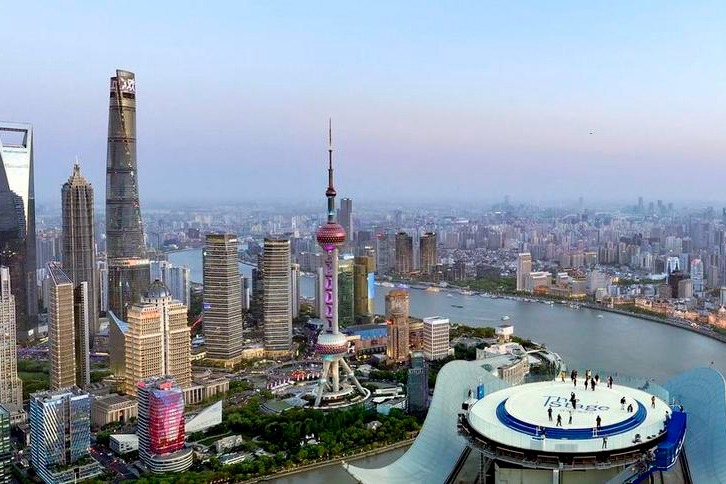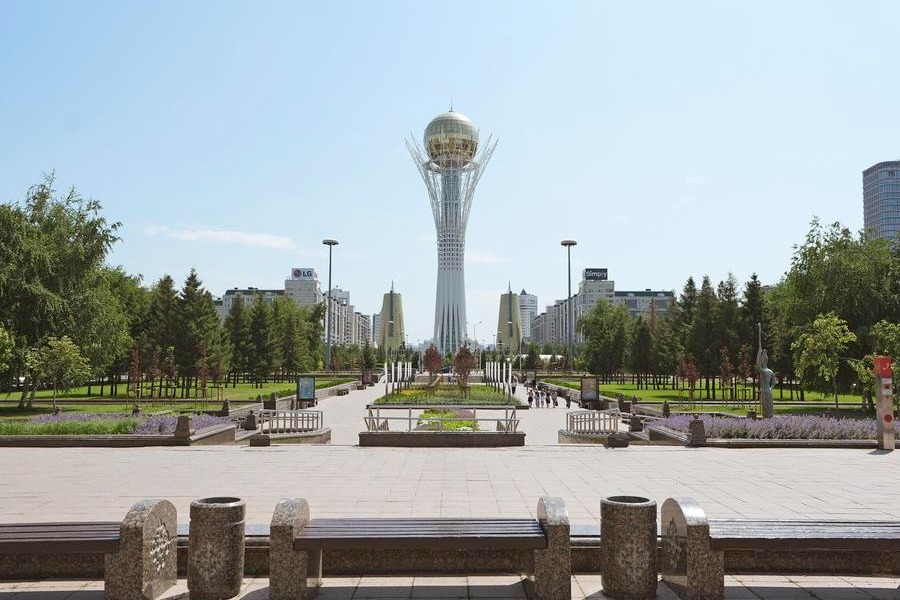Key to peace


Multipolarity is the unstoppable progressive trajectory for international relations
Editor's note: The world has undergone many changes and shocks in recent years. Enhanced dialogue between scholars from China and overseas is needed to build mutual understanding on many problems the world faces. For this purpose, the China Watch Institute of China Daily and the National Institute for Global Strategy, Chinese Academy of Social Sciences, jointly present this special column: The Global Strategic Dialogue, in which experts from China and abroad will offer insightful views, analysis and fresh perspectives on long-term strategic issues of global importance.
In today's world, acts of hegemony, domination and bullying, still persist. Unilateralism, protectionism and a narrow-minded approach to national interests are on the rise. Humanity is confronted with unprecedented challenges. Faced with these major issues and challenges in world politics, people worldwide aspire to find the right path to extricate themselves from crisis and turmoil and achieve lasting peace and prosperity.
The march toward multipolarity constitutes an unstoppable historical tide in human civilization's advancement and represents the progressive trajectory for international relations. Since the end of the Cold War and the collapse of the bipolar system, numerous developing nations have capitalized on this epochal transition, achieving unprecedented gains in comprehensive national power while dramatically expanding their global influence. These countries have also fostered solidarity and cooperation, leading to the continued expansion of multilateral mechanisms such as the Association of Southeast Asian Nations, the African Union, the Shanghai Cooperation Organization and BRICS. Global South countries are playing an increasingly significant role in regional and global affairs, emerging as the pivotal counterweight ensuring multipolarization advances along a constructive path. As the international balance of power undergoes profound shifts, the long-standing dominance of developed countries in world affairs is experiencing historic changes. The process of multipolarization has gained irreversible momentum, reflecting a more equitable and dynamic global order.
Equality is the cornerstone of a multipolar world. The law of the jungle, where the strong dominate the weak, only erodes the fairness and integrity of the international order. A truly equal multipolar system demands that all nations, regardless of their size or economic power, stand as equals — rejecting hegemonism, power politics and the monopolization of global affairs by a select few. It calls for genuine democracy in international relations. More than 300 years ago, the Peace of Westphalia enshrined the principles of equality and sovereignty, which have since become the bedrock of interstate relations. Sovereign equality means that the sovereignty and dignity of all countries, regardless of their size, strength and wealth, must be respected — free from external interference in their domestic affairs, with the right to independently choose their own social system and development path.
History and reality show that once the principle of sovereign equality is deviated from in international relations, it will lead to injustice and turbulence. To advance multipolarization, sovereign equality must be upheld — ensuring fair rights, opportunities and rules for all countries. No single nation or a handful of countries should monopolize global affairs. No country should be at the table while some others are on the menu. No country should willfully flex its muscles on the global stage, or pursue hegemonism, power politics and bullying. Instead, every nation and regional bloc should be able to find its place in the global multipolar system — fully participating, claiming its rightful voice, and contributing to shared progress.
A stable and rules-based order is essential for a multipolar world. Without it, turbulence and chaos will only hinder the steady and sustained progress of multipolarization. An orderly multipolar system must ensure that the process remains stable and constructive, avoiding major setbacks or disruptions. To achieve this, all nations must jointly uphold the purposes and principles of the United Nations Charter, adhere to the universally recognized fundamental norms of international relations, and practice true multilateralism. The purposes and principles of the UN Charter serve as the foundational guidelines for interstate relations and the cornerstone of a stable international order. Yet today's world faces growing turmoil, with peaceful development and global justice under increasing threat — precisely because these very principles have been inconsistently applied. Some countries selectively apply the rules, while others resort to decoupling or even withdrawing from international institutions, taking a regressive step backward.
Multilateralism lies at the heart of the current international system and world order, serving as a fundamental principle and practical framework for state-to-state interactions in our era. As globalization advances and multipolarity deepens, multilateralism has gained widespread recognition as the essential pathway toward reforming the global governance system. Yet in recent years, certain nations, driven by self-interest at the expense of others, have championed a doctrine of "putting one's own country first" while cloaking exclusivist agendas in the rhetoric of multilateralism. They have erected "small yard, high fences ", built "parallel systems", sowing division and confrontation worldwide and exacerbating instability and uncertainty in global affairs. Under the influence of a Cold War mentality and hegemonic maneuvering, multilateralism has been distorted into "my-country-first multilateralism", "exclusive club-based multilateralism" and "selective multilateralism".Such acts of unilateralism, protectionism, narrow-minded nationalism and pseudo-multilateralism are deeply harmful. The Western-centric model of multilateralism, in both theory and practice, has shown obvious deficiency and limitations. This makes it all the more imperative to uphold and advance genuine multilateralism. To do so, we must prioritize collective interests over national egoism, seek win-win cooperation over zero-sum rivalry, champion fairness and justice over bullying and hegemony, foster equal-footed dialogue over arrogance and imposition, and embrace openness and inclusiveness over isolation and exclusion. We must adhere to the principle of wide consultation, joint contribution and shared benefits to build a more just and equitable global governance system. Only then can multipolarization evolve into a historical journey where the international community unites to tackle shared challenges and achieve common prosperity.
China has a long-standing tradition of multilateral thinking. The Chinese civilization has always valued an equal and orderly multipolar worldview. Since the People's Republic of China was founded in 1949, it has worked to build a world of equality and order. In 1953, China first put forward the Five Principles of Peaceful Coexistence, namely mutual respect for sovereignty and territorial integrity, mutual non-aggression, noninterference in each other's internal affairs, equality and mutual benefit, and peaceful coexistence. Later, in 1970, the UN General Assembly adopted the Declaration on Principles of International Law concerning Friendly Relations and Cooperation among States in accordance with the Charter of the United Nations, which included the content of the Five Principles of Peaceful Coexistence, showing that the international community had widely accepted these principles.
In the new era, China steadfastly pursues an independent foreign policy of peace and a mutually beneficial strategy of opening-up. Committed to upholding the fundamental norms of international relations and championing global equity and justice, China consistently respects all countries' sovereignty and territorial integrity while affirming their right to independently determine their development paths and social systems. It firmly supports the UN-centered international system and seeks to strengthen the UN's pivotal role in building a more equitable and orderly world. China opposes the formation of closed and exclusive groups. China has proposed and implemented three global initiatives, namely, the Global Development Initiative, the Global Security Initiative and the Global Civilization Initiative, providing global public goods and contributing more to addressing worldwide challenges. China's development strengthens the forces of global peace, stability and progress. It has established itself as a cornerstone builder of world peace, a leading contributor to global development, and a staunch defender of the international order. China is an active advocate and practitioner of a multipolar world.
The author is director and professor at the Institute of International Strategy at the Party School of the Central Committee of the Communist Party of China (National Academy of Governance). The author contributed this article to China Watch, a think tank powered by China Daily. The views do not necessarily reflect those of China Daily.
Contact the editor at editor@chinawatch.cn.


































